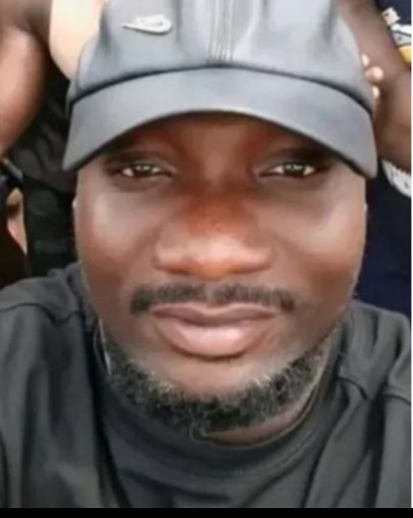
“Don’t Make That Mistake”: Nigerian Lawyer Stan Alieke Sends Blunt Father’s Day Message to Struggling Men

In a country where cultural expectations often override individual realities, Nigerian lawyer Stan Alieke has sparked a conversation that’s rippling through social media timelines with sharp resonance. On a day typically reserved for celebrating the dedication and sacrifices of fathers, Alieke used the opportunity to issue a sobering advisory that challenges societal pressure head-on. His message, though brief, has left many Nigerians re-evaluating the romanticism around fatherhood and the financial demands that come with it.
“If you know you can barely feed yourself as a man, don't make the mistake of starting a family or becoming a father,” Alieke wrote. “Don't let society pressure you into fatherhood when you know you are not financially capable or ready to be a father. The world is not fair to broke men not to talk of broke fathers. Happy Father's Day.”
The post, shared via Instagram, was more than just a hot take — it was a mirror held up to a growing reality in Nigeria and across many parts of the world. In a nation where economic hardships continue to squeeze the middle and lower classes, many young men are finding themselves trapped between traditional expectations of manhood and the brutal truths of survival in a challenging economy.
Stan Alieke’s Father’s Day message was no sermon in celebration, no poetic tribute to the role of dads in shaping children’s futures. Instead, it was a cautionary statement directed at the would-be fathers who may be leaning into family life with little more than hope and pressure guiding them. His words, bold and unfiltered, struck a nerve across both genders, sparking debates about personal responsibility, financial planning, and the deeply entrenched cultural idea that equates manhood with fatherhood.
On X (formerly Twitter), Facebook, and Instagram, reactions were swift and divided. Some praised the lawyer for his brutal honesty. “This is the kind of truth we need in society,” one user commented. “Men are being guilt-tripped into becoming fathers without any financial foundation and everyone suffers in the end — the wife, the child, and the man himself.” Another echoed the sentiment with, “He’s not shaming fathers. He’s telling the hard truth that many men wish someone had told them earlier.”
But not everyone agreed with Alieke’s view. Critics accused him of being overly harsh and feeding into capitalist ideas of worth being tied to wealth. “If we all waited to be rich before starting families, humanity would’ve ended long ago,” one female commenter retorted. Others highlighted the role of community, love, and support systems, suggesting that not all fatherhood journeys begin with financial abundance — and that’s okay.
Still, Alieke’s words cannot be dismissed as a random opinion in a vacuum. They reflect an ongoing struggle, especially among Nigerian youths, who are increasingly disillusioned by the disparity between societal expectations and their lived experiences. A look at current statistics shows that unemployment and underemployment rates remain staggeringly high among young Nigerians. Many men in their late 20s and early 30s are stuck in economic limbo — educated, ambitious, yet unable to secure stable incomes. For such individuals, the idea of building a family while still struggling with personal sustenance is not only daunting but potentially destructive.
Alieke’s warning, then, is not just about family planning; it’s a call for self-awareness, a plea for men to understand the weight of responsibility that comes with fatherhood. In a world where diapers cost more by the week and school fees rival annual salaries, the decision to start a family is no longer just a matter of tradition or age — it’s a financial contract that demands readiness.
And beyond the numbers, his message touches a deeper nerve — the shame and pressure many men feel to fulfill roles they’re not prepared for. Society still largely celebrates men who become fathers, regardless of their circumstances. But when things go wrong — when children go hungry, when homes become battlefields of frustration and unmet needs — the same society often turns its back, labeling such men as irresponsible or failures.
Alieke is clearly trying to push back against that narrative. He’s asking men to take control of their own timelines, to say “no” to cultural pressure if it doesn’t align with their current reality. In doing so, he offers a new kind of fatherhood advocacy — one that’s not about being the best dad in theory, but being a prepared one in practice.
Some would argue that no one is ever truly ready for parenthood. But what Alieke emphasizes is basic preparedness, the kind that ensures that a man doesn’t bring a child into a world where he’s already sinking. And that message, harsh as it may seem to some, could be the most responsible Father’s Day message yet.
Interestingly, this kind of conversation is gaining momentum beyond Nigeria. Across Africa, the Middle East, and even parts of Europe, young men are grappling with similar conflicts — the desire to build families and the inability to provide for them in uncertain economic times. In many cases, societal expectation becomes a trap, where love and masculinity are measured by a man’s willingness to become a father, regardless of his readiness.
But more voices like Alieke’s are beginning to question this logic. His approach may lack diplomatic cushioning, but its urgency is hard to ignore. And on a day where the world celebrates the ideal version of fatherhood, maybe it’s also time to talk about the realistic one.
As his message continues to circulate online, it’s clear that it has tapped into something deeper — a growing need to redefine fatherhood not just as a status or role, but as a responsibility grounded in emotional and financial readiness. Love may be the foundation of family, but in a harsh world, love alone is rarely enough.
Stan Alieke didn’t just wish men a Happy Father’s Day. He offered them a challenge. And for many, that might be the most loving thing anyone could do.

